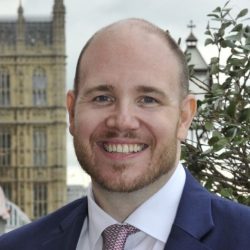 School nurses have a unique position of trust with young people and can be one of the professionals that young people turn to when they are working through their sexual orientation or gender identity and finding their identity.
School nurses have a unique position of trust with young people and can be one of the professionals that young people turn to when they are working through their sexual orientation or gender identity and finding their identity.
Stonewall’s School Survey (2017) showed that although things have improved since 2012 there is still a long way to go:
- Nearly half (45%) of LGB, and 64% of Trans, pupils still face bullying at school for being LGBT
- Nearly one in ten trans pupils (9%) are subjected to death threats at school
- Almost half of LGBT pupils (45%) who are bullied for being LGBT never tell anyone about the bullying
- Fewer than a third of bullied LGBT pupils (29 per cent) say that teachers intervened when they were present during the bullying
- More than half of LGBT pupils (53 per cent) say that there isn’t an adult at school they can talk to about being LGBT
- More than four in five trans young people (84%) have self-harmed. For lesbian, gay and bi young people who aren’t trans, three in five (61 %) have self-harmed
- More than two in five trans young people (45%) have attempted to take their own life. For lesbian, gay and bi young people who aren’t trans, one in five (22%) have attempted to take their own life
- Disabled LGBT young people are more likely to deliberately harm themselves than non- disabled LGBT young people (80% compared to 64%).
All students – regardless of their sexual orientation, gender identity or gender expression – should receive inclusive and supportive care from school nurses in line with Prioritising People in the Nursing and Midwifery Code of Conduct. This inclusive and LGBT friendly care and support can be pivotal for those who are experiencing bullying, harassment or contemplating self-harm or suicide.
International research has highlighted young people’s concerns about talking to school nurses about same sex attraction and sadly the Stonewall Unhealthy Attitudes survey(2015) highlight that the NHS still has a long way to go to address homophobia, biphobia and transphobia in the workplace
Leading change, Adding Value highlights the key role that nurses, midwives and care staff have in improving health and wellbeing and addressing unmet need. The evidence base of inequalities affecting lesbian, gay, bisexual and trans young people is stark:
- 7% of gay & lesbian and 24.7% of bisexual 15 yrs are currently smokers compared to 7.5% of straight identified 15yr olds
- 52% of young LGBT people reported self-harm either recently or in the past compared to 25% of heterosexual non-trans young people and 44% of young LGBT people have considered suicide compared to 26% of heterosexual non-trans young people.
- 35% of LGB people in one large national survey had taken at least one illicit drug in the last month. This figure is 7 times higher than that reported by the British Crime Survey (2010/11) for the general population, and among LGB people aged 16-24 use of any drug in the last month is more than 2.5 times higher than among their heterosexual counterparts.
Schools nurses act as an important link between school, home and the local community and can be an excellent gateway to support LGBT young people to access local LGBT support such as local LGBT youth groups or even just a safe confidential place to phone the national LGBT switchboard.
There are a lot of free resources to support school nurses to work with LGB&T young people. PHE worked with the RCN to publish two toolkits to support nurses working with young people to be more confident in supporting lesbian, gay and bisexual young people and trans young people and preventing suicide. There are also free e-learning modules on the RCGP e-learning platform on LGB issues in primary care and also on gender variance in young people as well as the diversity as well as a range of other RCN resources.
As healthcare professionals, we all have a duty to support lesbian, gay, bisexual and trans young people to achieve their potential to have happy and healthy lives and be a safe space for them to turn to when they need help and support, sometimes this support can truly be life-saving for a young person who is contemplating suicide.
Check out this excellent film made by young people: link
Dr Justin Varney, National Lead for Adult Health and Wellbeing, Public Health England
